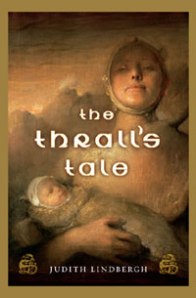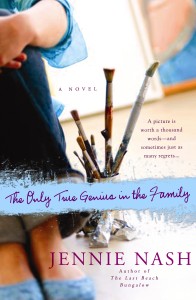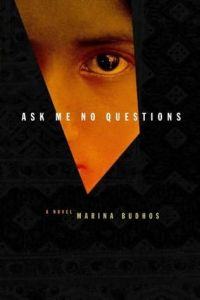Historical novelist Judith Lindbergh writes about her irrational passion for research.
The joy and burden of my literary life is research. There is nothing more exciting to me than the 22-inch high stack of academic texts, museum exhibition catalogues, and translated ancient manuscripts sitting on the corner of my desk like an untouched burial mound waiting to be exposed.
 I approach my decidedly obscure topics with an archaeologist’s passion for minute detail. For my first novel, The Thrall’s Tale, about women in Viking Age Greenland, I literally studied monographs on the number of lice found in household waste-pits, not because I have a particularly penchant for lice, but because if there were lice, there were itchy, uncomfortable beds made of moss and straw; there was filthy, stinking clothing; and there were animals sleeping inside the houses with the humans in winter. I latched onto each detail not just for simple description, but to grasp a visceral awareness of what my characters endured.
I approach my decidedly obscure topics with an archaeologist’s passion for minute detail. For my first novel, The Thrall’s Tale, about women in Viking Age Greenland, I literally studied monographs on the number of lice found in household waste-pits, not because I have a particularly penchant for lice, but because if there were lice, there were itchy, uncomfortable beds made of moss and straw; there was filthy, stinking clothing; and there were animals sleeping inside the houses with the humans in winter. I latched onto each detail not just for simple description, but to grasp a visceral awareness of what my characters endured.
With my latest novel, Pasture of Heaven, about a nomad woman warrior on the Central Asian steppes, I’m finally past the point of scrounging for details. My characters have risen from unearthed bones, bits of tarnished arrowheads, rusty daggers, and delicate, hand-crafted beads. There comes a moment when the facts fall into place and I sense my protagonist sitting beside me, quietly tapping a finger on my desk as if to say, “OK, that’s enough. Let’s go!” It’s not that I know everything, because everything is impossible to know. But the moment comes when I feel that I am “full” – I understand my characters’ basic natures, the challenges of their lives and the beliefs that sustained them, the landscape and atmosphere that framed their lives.
It’s easy to ignore that moment, because in the end (for me, at least), research is easier than writing. It’s seductive, and undeniably useful, to return to that deep, sweet well to sip. The truth is that research never really stops. Even today, if anything comes my way about Norse Greenland, I catch myself salivating like Pavlov’s dog. The trick is in sensing that moment when I’m about to overflow. Then I set my hands on my keyboard and begin to write. If I’m lucky, the spirits of the long dead are whispering in my ears.
Judith Lindbergh’s debut novel, The Thrall’s Tale, was a Booksense Pick and a Borders Original Voices selection. She teaches creative writing at the South Orange Maplewood Adult School. Learn more about her work at her website, and visit her blog, The Writers Circle: Process, practice, hope, and the business of writing.
 “To have begun is to be half-done;
“To have begun is to be half-done; Some handy rules for when, why and how to ask readers to respond to a work-in-progress:
Some handy rules for when, why and how to ask readers to respond to a work-in-progress: When the writer
When the writer  My plan this summer was to force myself to write to the end of my historical novel, a book I have been working on for a number of years while I completed other projects. Summer is my best writing time, when I am home, puttering around my house, the children off in camp, with no teaching responsibilities fracturing my attention. My aim, then, was to bring this all to a head, especially since the end of this novel is meant to be very dramatic and also violent, a crescendo of so many parts, voices, themes. And yet even the most thoughtful of plans have a way of upending.
My plan this summer was to force myself to write to the end of my historical novel, a book I have been working on for a number of years while I completed other projects. Summer is my best writing time, when I am home, puttering around my house, the children off in camp, with no teaching responsibilities fracturing my attention. My aim, then, was to bring this all to a head, especially since the end of this novel is meant to be very dramatic and also violent, a crescendo of so many parts, voices, themes. And yet even the most thoughtful of plans have a way of upending.